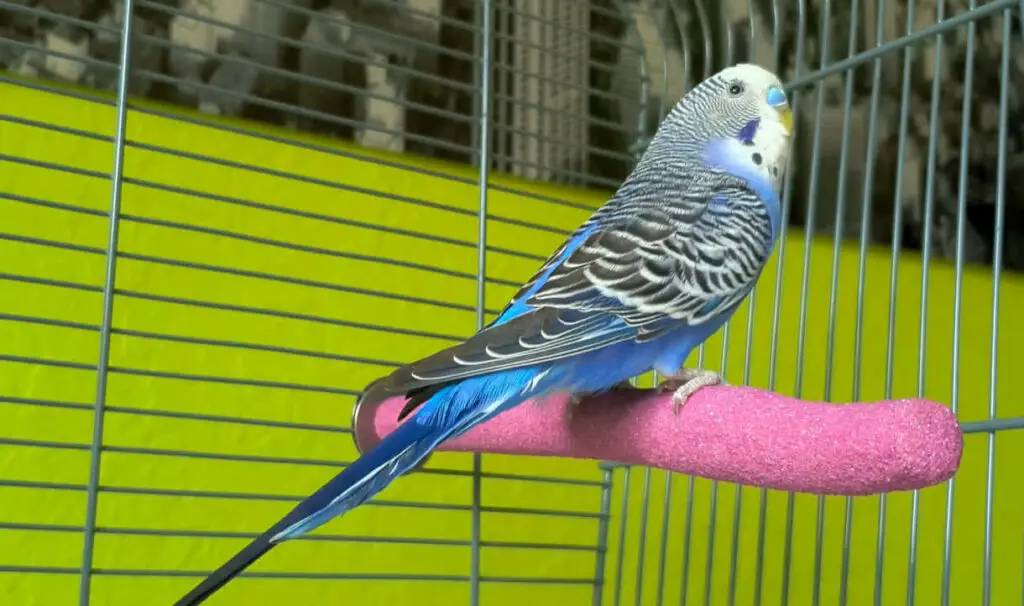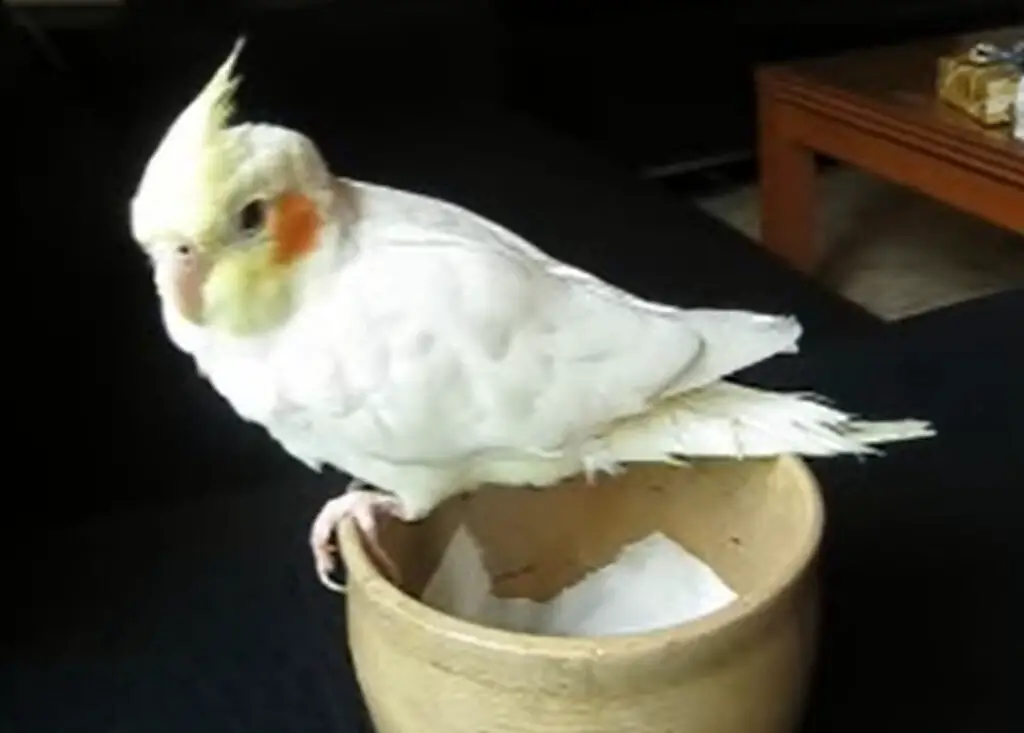A parrotlet sudden demise will be devastating to homeowners.
The very last thing you need is to see your pet struggling, particularly if you find yourself not even sure concerning the trigger.
This is the reason it helps to have an excellent understanding of why this occurs and the frequent causes behind it. By doing so, you’ll be able to forestall such a horrible state of affairs and make sure the well being and well-being of your parrotlet.
With all this being stated, allow us to take a look at parrotlet sudden demise causes and issues it’s good to keep away from to verify your pet stays nicely and reaches its optimum wellness. Let’s get began.

Contents
Parrotlet Sudden Demise Causes
When you’ve got a feathery pet as a family pet, then chances are you’ll be questioning what it takes to maintain it comfortable, wholesome, and nicely.
Sadly, there are some situations of a parrotlet sudden demise – and a few homeowners usually are not even positive why this occurs! This is the reason if you need to forestall this from occurring, chances are you’ll wish to hold studying to grasp higher what these causes could also be.
1. Dehydration
When you’ve a pet parrotlet in the home, you wish to guarantee that it’s getting the correct amount of water it wants. Some homeowners are stunned to see their feathery pal wobbling and getting ready to demise, solely to understand – because of their vet – that the chicken has been sustaining extreme dehydration.
This is the reason it’s good to verify rigorously how a lot water you might be giving your pet. Maybe the water bottle or water dispenser has not been working nicely, or there isn’t any water left in any respect. Do take into account that birds can die from dehydration in simply three days of being disadvantaged of water.
Therefore, make it part of your each day routine to verify in your pet’s water provide and make sure that it’s getting the liquids it wants.
2. Poisoning
Birds are very delicate creatures and their sense of scent is impeccable. So, if there may be some type of poisonous fumes or gasoline wafting within the air – and it occurs to get into your pet’s physique, then there’s a danger of poisoning.
Actually, parrotlets can die all of a sudden due to this, and never many house owners are conscious that this may be the trigger. Among the many commonest dangerous fumes in the home that may kill your pet embrace fumes coming from the covers of your iron boards, some warmth lamps, and non-stick cookware. The primary materials that may kill your pet is PTFE or polytetrafluoroethylene.
Furthermore, there are different fumes which are poisonous to parrotlets akin to smoke coming from cigarettes and vapors from aerosol merchandise and bleaches. These fumes can result in respiratory blockages that can finally kill your pet.
So, we advocate holding your pet away from these fumes or sources of those vapors. Thus, the most effective place to place your pet’s cage is away from the kitchen and be certain there may be ample air flow and contemporary air all all through the day.
3. Evening Fright
Now, that is one thing that not many house owners are conscious of, but it does trigger parrotlet sudden demise. However these birds usually are not the one ones that may die due to this trigger. Among the many different species that may die because of evening fright embrace budgies, finches, and cockatiels.
What evening fright means is that there are some disturbances occurring in a peaceable and quiet evening, which may trigger panic to your pet. In consequence, your parrotlet immediately experiences nice worry and feels as if it’s in grave hazard. In its try to guard itself from this imagined risk, it should transfer swiftly within the air and attempt to fly away.
Sadly, it finally ends up thrashing its delicate physique and head in opposition to the ceiling of its cage, which ends up in severe inner accidents. As a rule, this could trigger the chicken to undergo and die.
4. Poisonous Vegetation
Vegetation are improbable additions to your house, particularly those that add magnificence to your indoor house. Nonetheless, you will not be conscious of this however there are some vegetation which are toxic to your feathered mates. For instance, the Oleander is a beautiful plant with pleasant blooms. However as soon as your parrotlet chews on the leaves, it will possibly rapidly kill your pet due to the poisonous parts in it.
With this in thoughts, remember to select rigorously the vegetation you set in your house. Examine what the traits are and if there are any security dangers to your valuable pet.
5. Temperature Of Meals
Hand-feeding is essentially the most best approach of feeding child parrotlets. However do you know that while you feed your pet meals at a really low temperature, this could do extra hurt than good for its physique? What occurs is that this could result in a disruption to the functioning of its gastrointestinal tract, which may result in one thing deadly.
Moreover, utilizing soiled utensils that will have some micro organism in them or forceful feeding leading to aspiration pneumonia are extra dangers to your pet’s life. This is the reason hand-feeding should solely be carried out with the supervision of an knowledgeable on the onset till you might be well-versed about this technique.
Further Issues To Think about
Now, it is very important observe that your parrotlet has a really delicate physique. So, if you happen to favor to carry your pet round to some reveals, membership conferences, and the like, this will increase the danger of illnesses that may get transferred from one chicken to a different. Amongst these illnesses embrace giardia, chlamydiosis, and polyoma, to call just a few.
Even including one other chicken into your pet’s cage will also be a possible disease-carrier. So, it is very important quarantine the opposite chicken first for a few months to verify every thing is completely fantastic with its well being.
Backside Line
Parrotlet sudden demise causes come in numerous types and kinds. So, as a accountable pet proprietor, remember to keep knowledgeable of those potential dangers to your chicken’s well being and life and keep away from them as a lot as you’ll be able to.
When not sure of what to do, you may as well seek the advice of your vet for additional info on the easiest way to care on your parrotlet to maintain it wholesome and nicely for years to come back.







